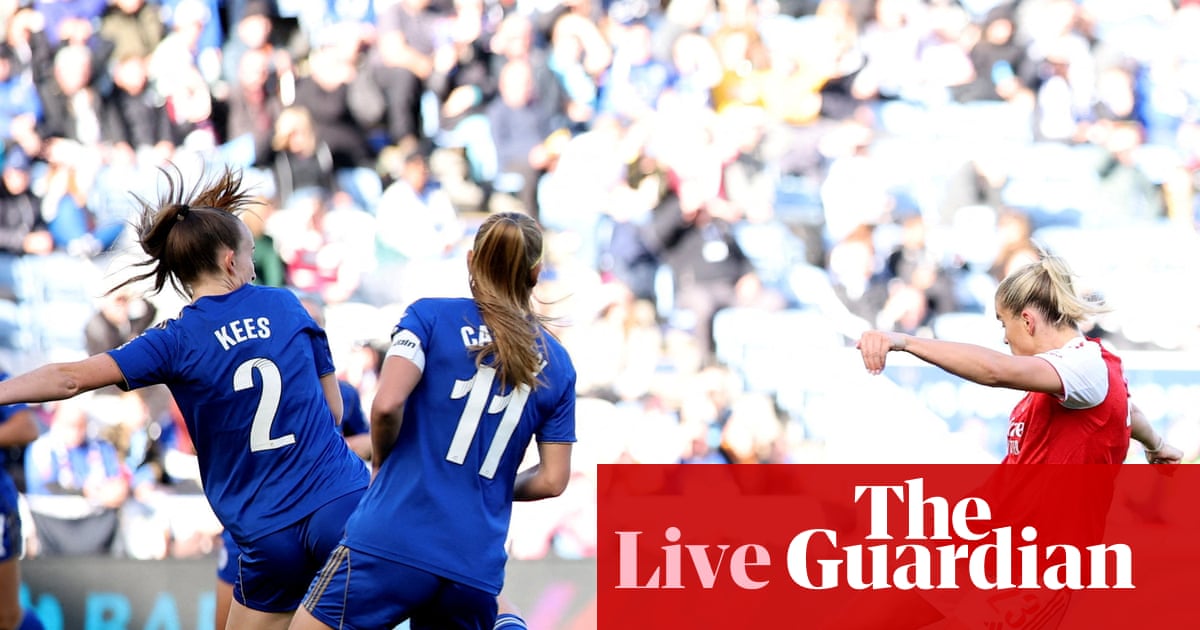Less than a month into its existence, Jeremy Corbyn and Zarah Sultana’s new leftwing party is already widely seen as a mess. Its leadership, its launch schedule and even its name: all have caused inconclusive, semi-public rows. The opportunity provided by political novelty appears to be being wasted.
For the many journalists and politicians who always see the left as incompetent and naive, the stop-start, seemingly uncoordinated first weeks of Your Party, as it may or may not eventually be named, have felt like a gift – a summer silly season story after months of grim political acrimony. “Thank Christ Jeremy Corbyn and Zarah Sultana are here to give us a laugh,” wrote Sebastian Murphy in the Daily Express. “Labour’s loopy Left have bravely broken free of Starmer’s stultification to bring us a political party that is easily the funniest thing since the anti-Brexit centrists Change UK.” Now largely forgotten, Change UK lasted 10 months after splitting from Labour in 2019.
For left-leaning Britons who’ve had enough of Labour’s rightward shifts and intolerance of dissent, and have been hoping for a viable alternative, the new party’s launch has been depressing. Why, in times which so obviously require a radical fightback, can’t the left agree a clear way forward? Why is it still so dependent on Corbyn, who after 42 years in parliament can hardly be presented as a fresh figure? And where are the nimble strategists that the immensely difficult task of establishing a successful leftwing party is going to need?
Some of the answers to these questions, which British leftists often ask each other with despairing shrugs and eye-rolls, lie in socialism’s struggles in this country since the 1980s. These have left the movement with gaps and imbalances, which are exposed whenever it tries to take the initiative.
Yet as well as considering these weaknesses, it’s also important to acknowledge that, despite all the confusion and ridicule, Corbyn and Sultana’s new party has struck a nerve. It says that more than 600,000 people have signed up on its rudimentary website for updates and information about how to get involved – almost as many people as the memberships of Labour, the Tories and Reform UK combined. In some of the most hostile coverage of the new party, there is a revealing note of alarm. “Something has actually gone seriously wrong with British society,” wrote Camilla Tominey in the Telegraph, “if a party such as this could poll at 18 per cent” – the proportion who told YouGov they would “consider” voting for a new Corbyn-led party. “It’s a rebellion against the broken status quo.”
Superficially, this rebellion seems little different from the half dozen that have tried and failed to break Labour’s left-of-centre monopoly over the past 30 years: Respect, Left Unity, the Workers party of Britain, the Socialist party, the Socialist Labour party, the London Socialist Alliance. Well-known leftists such as Arthur Scargill and George Galloway attempted to turn strong local power bases, personal charisma and leftwing credibility into something bigger, at times when Labour was alienating its more radical supporters. A few parliamentary and council seats were won, but rarely for long. The new parties were both too narrow – dominated by one person – and too broad – prone to ideological differences – to sustain their initial momentum. With their ageing figureheads and traditional leftwing sectarianism, the new parties did not seem new enough.
This time, the involvement of Sultana, one of the most digitally fluent young MPs, sends a different signal. So does the involvement of innovative and ambitious political operators, such as Momentum co-founder James Schneider, who helped make Corbyn’s Labour leadership, at times, surprisingly dynamic and popular– despite it being widely written off, as the new party is now. Six years on from Corbynism’s defeat, there is finally a movement, largely undetected by the mainstream media, of bright, youngish leftwing activists back into the political game.
And yet, as the frictions between Corbyn and Sultana have shown, it remains tricky to unite two leftwing generations, very different in age and levels of political patience – while also appealing more effectively to middle-aged Britons, who grew up under New Labour and often absorbed its centrist assumptions. These difficulties afflicted Corbyn’s Labour leadership, and ultimately helped destroy it.
The British left has so often been excluded from power over the past 40 years that it frequently lacks the skills that experience of power can bring: building and sustaining coalitions, maintaining message discipline, creating political organisations that are representative without being too fractious. Truly leftwing British parties, in short, tend to be a bit rickety, yet they must stand up against our conservative political culture’s strongest winds.
Then again, such deficiencies may matter less nowadays. The deep discontent and many crises left by 14 years of rightwing rule, impatience with Starmer’s methodical but patchy reforms, and outrage at his government’s Gaza evasions, mean that many voters are in an adventurous – or reckless – mood. A radical party with a highly divisive leader, thrown-together structure and frequent internal rows already exists, and it’s called Reform. Its poll lead suggests that voters are less interested than journalists in party processes, and more interested in stories about what’s wrong with Britain, compellingly told. Whether at rallies or on social media, Sultana and Corbyn are just as capable of this as Nigel Farage. A new poll shows that Reform voters strongly prefer Corbyn to Starmer, which suggests that the new party could take Reform votes.
Reform has more media backing than the new party ever will. Yet it’s likely that rightwing journalists will keep giving the leftwing party publicity, and even some favourable coverage, in order to hurt Labour. So the new party will need to pull off a balancing act: keeping its personalities and factions happy, developing populist but not fantastical policies, and wounding the government without helping Farage into Downing Street.
Labour loyalists will say that a left divided is a left defeated. But if they truly believed that, Starmer’s party and government would be much more pluralist. What these loyalists really think is that the left should only ever be divided on their terms. That entitled and coercive logic has now had consequences. A new leftwing party, risky and imperfect, could be here to stay. This time, it’s possible that our politics will never be quite the same again.
-
Andy Beckett is a Guardian columnist

 3 months ago
50
3 months ago
50

















































